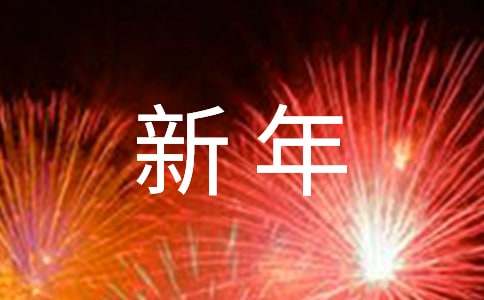- 相关推荐
新年的由来英语
春节是中华民族最隆重的传统佳节,同时也是中国人情感得以释放、心理诉求得以满足的重要载体,是中华民族一年一度的狂欢节和永远的精神支柱。春节与清明节、端午节、中秋节并称为中国四大传统节日。下面由小编为大家整理的新年的由来英语作文,希望可以帮助到大家!

新年的由来英语 篇1
the chinese new year is now popularly known as the spring festival because it starts from the begining of spring (the first of the twenty-four terms in coodination with the changes of nature). its origin is too old to be traced. several explanations are hanging around. all agree, however, that the word nian, which in modern chinese solely means "year", was originally the name of a monster beast that started to prey on people the night before the beginning of a new year.
one legend goes that the beast nian had a very big mouth that would swallow a great many people with one bite. people were very scared. one day, an old man came to their rescue, offering to subdue nian. to nian he said, "i hear say that you are very capable, but can you swallow the other beasts of prey on earth instead of people who are by no means of your worthy opponents?" so, it did swallow many of the beasts of prey on earth that also harrassed people and their domestic animals from time to time.
after that, the old man disappeared riding the beast nian. he turned out to be an immortal god. now that nian is gone and other beasts of prey are also scared into forests, people begin to enjoy their peaceful life. before the old man left, he had told people to put up red paper decorations on their windows and doors at each years end to scare away nian in case it sneaked back again, because red is the color the beast feared the most.
from then on, the tradition of observing the conquest of nian is carried on from generation to generation. the term "guo nian", which may mean "survive the nian" becomes today "celebrate the (new) year" as the word "guo" in chinese having both the meaning of "pass-over" and "observe". the custom of putting up red paper and firing fire-crackers to scare away nian should it have a chance to run loose is still around. however, people today have long forgotten why they are doing all this, except that they feel the color and the sound add to the excitement of the celebration.
新年的由来英语 篇2
the Chinese New Year is now popularly known as the Spring Festival because it starts from the Begining of Spring (the first of the twenty-four terms in coodination with the changes of Nature). Its origin is too old to be traced. Several explanations are hanging around. All aGREe, however, that the word Nian, which in modern Chinese solely means "year", was originally the name of a monster beast that started to prey on people the night before the beginning of a new year.
One legend goes that the beast Nian had a very big mouth that would swallow a GREat many people with one bite. People were very scared. One day, an old man came to their rescue, offering to subdue Nian. To Nian he said, "I hear say that you are very capable, but can you swallow the other beasts of prey on earth instead of people who are by no means of your worthy opponents?" So, it did swallow many of the beasts of prey on earth that also harrassed people and their domestic animals from time to time.
After that, the old man disappeared riding the beast Nian. He turned out to be an immortal god. Now that Nian is gone and other beasts of prey are also scared into forests, people begin to enjoy their peaceful life. Before the old man left, he had told people to put up red paper decorations on their windows and doors at each years end to scare away Nian in case it sneaked back again, because red is the color the beast feared the most.
From then on, the tradition of observing the conquest of Nian is carried on from generation to generation. The term "Guo Nian", which may mean "Survive the Nian" becomes today "Celebrate the (New) Year" as the word "guo" in Chinese having both the meaning of "pass-over" and "observe". The custom of putting up red paper and firing fire-crackers to scare away Nian should it have a chance to run loose is still around. However, people today have long forgotten why they are doing all this, except that they feel the color and the sound add to the excitement of the celebration.
新年的由来英语 篇3
Lunar New Year , the most solemn of traditional Chinese folk festivals. First day of the first lunar month in the traditional Chinese lunar calendar, known as the Moon, commonly known as "New Year" and "New Year." The long history of the Spring Festival, which originated in the Shang period the year draws to a close servicemen and the memorial activities. According to Chinas Lunar, the first day of the first lunar month yen ancient name, Yuan-chen, a copy, is Emperor, the New Year Day, which is commonly known as Day of the Republic. switch to the Gregorian calendar, the calendar on January 1 as New Years Day, January 1st called the Lunar Spring Festival.
春节是中国民间最隆重的'传统节日。在夏历正月初一,又叫阴历年,俗称“过年”、“新年”。春节的历史很悠久,它来历于殷商时期年头岁尾的祭神祭祖活动。按照我国农历,正月 初一古称元日、元辰、元正、元朔、元旦等,俗称年初一,到民国时期,改用公历,公历的一月一日称为元旦,把农历的一月一日叫春节。






